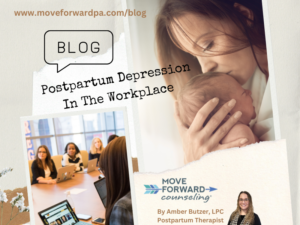Mental health professionals have bad days too. We have days where we feel like a rollercoaster of emotions. We often feel overwhelmed and struggle to “catch our breath.” We face emotional challenges just like the rest of the world. After all, we are human, and things happen.
This past year the need to focus on mental health has been more apparent than ever. Life threw us all quite a curveball, forcing us to change our lives in big ways—whether we wanted to or not. Even the most stable person had times of struggle during the Covid-19 pandemic.
As we enter Mental Health Awareness month and draw attention to the importance of caring for your mental wellbeing—aka “putting your oxygen mask on first”—we decided to list some of the things counselors do to keep their mental health in check:
1.) Recognizing Warning Signs & Not Being Ashamed of Them
When you are frequently working with people as they face their own stories, it can be easy to allow their pain to become your pain. This applies across life as you have conversations with others, hold friendships, or through the media you consume. It is important to recognize the warning signs, accept your feelings, and take steps to pull yourself out before the wounds get too deep. For example, when you notice that you are feeling sad, short-tempered, or angry at the world you might turn that energy into something positive by doing a nice deed for a neighbor, donating clothing or food, or clearing your head through meditation or exercise. It is all about balance.
2.) Model Wellness
We all talk the talk of getting enough sleep, eating well, exercising, being careful to not overindulge in unhealthy behaviors like alcohol consumption but we also have to do them. If we don’t take care of ourselves, we aren’t going to be very good at our jobs. Part of being a counselor is about being truly authentic. To be the best version of ourselves, we must feel good and have energy.
3.) Set Boundaries
As counseling professionals, we frequently tout the importance of boundaries, which is why we are careful to set them ourselves. Healthy boundaries mean staying home when we are sick, having clear start and end times to the workday, turning down invitations for things that don’t bring us joy, unplugging from media, and recognizing when we need a mental health day, to name a few.
4.) Get Help
Just like the dentist still needs to get his teeth cleaned and the doctor still needs to get a mammogram, a therapist still needs some help overcoming stress, depression, anxiety, or other problems from time to time. When we aren’t feeling our best or have some unresolved stress of our own, we seek help. Regularly meeting with a counselor or other mental health professional helps us to better work through any challenges.
5.) Schedule Mental Check-Ins
Life can quickly get so busy that we forget to check in with ourselves. We move along with the daily flow and realize we haven’t put much thought into how we are feeling. That is why we schedule time each day or week for a mental health check-in. We ask ourselves “how are you feeling?” “Why are you feeling that way?” Then determine how, if needed, to improve our situation. What this comes down to is self-awareness. It is being in tune and aware of our body, so any aches and pains or lingering anxiety can be addressed before getting out of control.
6.) Embrace Joy
This is the ultimate form of self-care. It is all about making time to do the things that bring us joy, fulfillment, and happiness. Ultimately this is what life is all about, right? That means making time for vacations, hikes, books, family time, sleeping in, nights out with friends, journaling, etc. It is so easy in this 24/7 culture of overworking and burnout to put the things that truly bring us happiness on the back burner. Being content with how we have spent our day, our week, our month is the definition of a successful life.
7.) Accept and Forgive
Everyone makes mistakes. We can either hang on to those mistakes and carry regrets from our past with us or we can accept them and forgive ourselves. Staying stuck in the past is a huge burden for our mental health and overall wellbeing. It is much easier to let it go and find freedom from past mistakes.
These are just a few mental health tools we use. Look for more tips from Move Forward’s therapists on social media this month. If you or someone you know is struggling consider seeking the help of a licensed mental health professional. At Move Forward we work with clients from all walks of life throughout the state of Pennsylvania on a variety of challenges including depression, anxiety, stress, pregnancy loss, infertility, body image, caregiver stress, and more. We have online therapy appointments available.
Ready to begin counseling in Pennsylvania?
Our professionally-trained and licensed counselors have openings. Just call our office at 717-462-7003×1 and speak to our administrative assistant to get started to feeling better. You can get the tailored help you need right now. We are here for you.






























